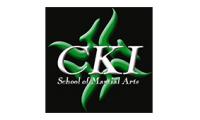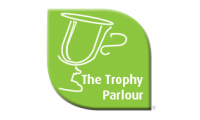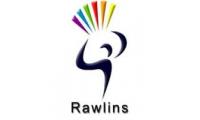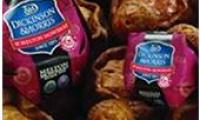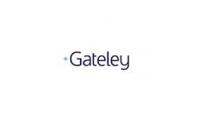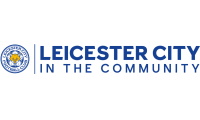What is SADS?
SADS stands for Sudden Arrhythmic Death Syndrome. This happens when the heart stops beating unexpectedly (cardiac arrest) due to an abnormal rhythm, and generally happens to younger people who did not know they had a heart problem.
In an 'arrhythmia' the heart stops beating in the normal way. The muscles of the heart beat so chaotically that there is no pulse, no pulse means no blood pressure, no blood pressure means no blood to the head and vital organs, and within as little as half a minute the person passes out. This is called 'cardiac arrest'. Within minutes they can be dead, unless CPR is started and a defibrillator used.
Frequently Asked Questions
How Common is it?
It is thought that 12 children and young people PER WEEK die of SADS in the UK.
That Sounds Scary. Can it be Prevented?
Don't be scared. There are many more cases per week detected at the stage of symptoms rather than death, so that cardiac arrest is then prevented.
Who gets SADS?
Often it is young people born with a genetic condition they weren't aware of, although people with known heart conditions can die of an arrhythmia.
What do you mean by Young?
From babies to people aged around 35. Older people can die of SADS but older people are more likely to have heart disease, so we don't use the word 'sudden' or 'SADS' so much.
Why isn't this a Well-Known Problem?
Over the last 20 years research, genetics and better technology for post mortems means that we realise SADS is much more common than people ever knew, in years gone by. For example SADS is probably the reason in many cases of drowning in calm water, and deaths during sleep in healthy people.
Older age heart disease is different. It is a well known problem as it causes up to 25% of deaths in the UK and can be preventable, so attracts a lot of publicity and research around smoking, obesity etc.
The label 'SADS' is not often used either, when deaths occur. The cardiac arrest happens out of the blue, so when deaths are reported in the media, no-one knows what the cause is. You just see phrases like 'unexpectedly died' or 'died or a heart attack' (which isn't strictly true, in medical terms).
By the time the post mortem happens few days later, the death has stopped 'being news' so people don't hear the phrase 'SADS'. Also, the post mortem may not find the diagnosis straight away - specialist tests may need to be done, which take time.
How can a Healthy Person's Heart Stop Beating?
The electric current and muscle pumping that happens for every heartbeat, needs the right 'electrical wiring', the right 'plumbing' (good blood flow through the arteries), normal and strong heart muscle, and the right balance of chemicals within the heart muscle cells. There are quite a large number of genetic conditions which can cause problems of the electrics, the chemicals, and or the growth of the heart muscle cells during teenage years. These genetic conditions cause SADS.
Older age heart problems are due to disease of the arteries caused by smoking, high blood pressure, diabetes, obesity and high cholesterol. In SADS conditions, the arteries are healthy.
I've heard of sports people like footballers collapsing or having a cardiac arrest at the end of a marathon or a bike race - is there a connection with sport?
Yes there is. Anyone with one of these genetic conditions causing SADS can have a cardiac arrest at any time, but if the heart is being pushed very hard (strenuous sport, diving, exercise during extreme heat for example) SADS is more likely.
Can Someone have an Arrhythmia Without Dying of SADS?
Yes. Lots of people up and down the country have arrhythmias every hour of every day. Some are more life threatening than others. Often, an arrhythmia leads to the heart partially beating. The person stays alive but may faint, or feel palpitations in their chest.
How Would I Know if I or Some I Knew had One of the Conditions which Causes SADS?
Don't be scared. there can be some clues. These include:
- Fainting during or shortly after exercise (as opposed to normal faints which happen when you're hot, hungry, emotional or scared).
- Unexplained death in the family in a healthy person under the age of 50 (this may include drowning in calm waters, during sport or dying in their sleep).
- A feeling of palpitations in the chest.
What Can be Done to Prevent Deaths from SADS
- Make the diagnosis early on. SADS is very preventable, if warning signs lead to the diagnosis of one of these genetic conditions, or if a family undergoes screening once one member of the family is known to have a problem. Death and arrhythmias can be prevented with tablets or an internal defibrillator placed next to the heart, under the rib cage.
- When cardiac arrest occurs or is suspected, make sure resuscitation is started as soon as possible so that a survivor is less likely to have permanent brain damage. Everyone should know how to do CPR on someone who is in cardiac arrest, and we should have as many defibrillators around as there are fire extinguishers. You need to start CPR within a minute of collapse to prevent brain damage, and to use the defibrillator within 8 minutes to prevent death. Every 1 minute delay brings 10% more chance of death.
- We need to support research into SADS.
- We need to make sure that teachers, sports coaches, nurses, doctors and physiotherapists all know about the warning signs (fainting or palpitations).
The Joe Humphries Memorial Trust supports all four of these strategies.
